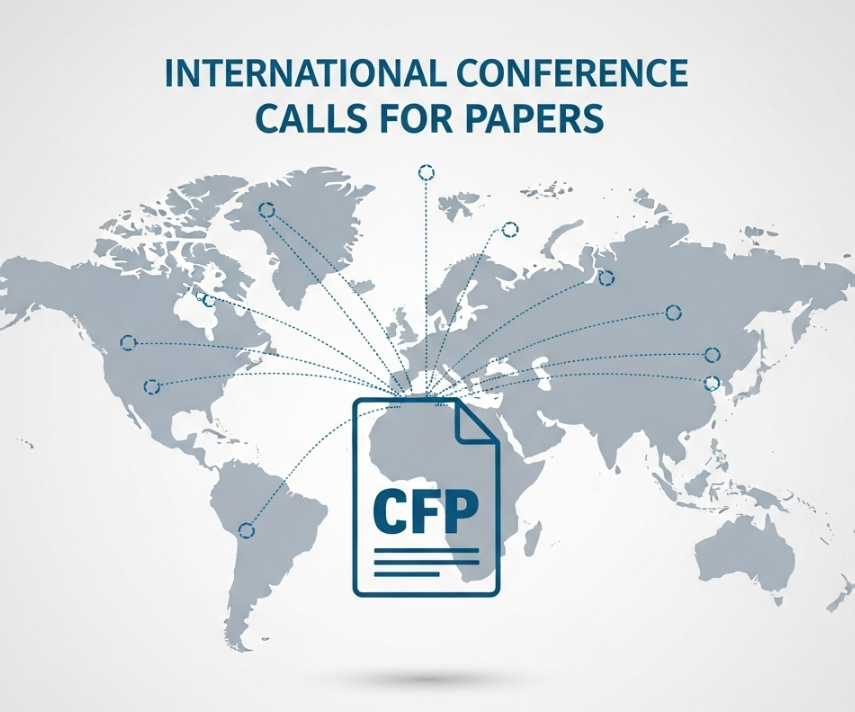

413 views||Release time: Nov 10, 2025
For researchers in engineering, computer science, and other technical fields, publishing your work is essential for graduation, promotion, and career-building. While journal publications are standard, conference papers often play an equally, if not more, important role.
This is where the term "EI-Indexed" becomes critical. It's a key benchmark for quality, but it's also a term that is often misunderstood and, unfortunately, misused by predatory conferences.

This guide will explain what an EI-indexed conference truly is, why it matters, and how you can reliably find one for your research.
When academics talk about "EI," they are referring to the Engineering Index, a comprehensive bibliographic database of engineering and technical literature. However, the core, most valuable part of this database is called Compendex.
Therefore, a "EI-indexed conference" is a conference whose proceedings (the collection of all its papers) have been successfully indexed in the EI Compendex database.
In the Compendex database, an indexed conference paper is labeled as a "Conference Article" (CA).
This is distinct from a "Journal Article" (JA).
For many graduate schools, especially in Asia and Europe, having a CA indexed in EI Compendex is a common requirement for graduation.
Speed to Publication: The review and publication cycle for a conference is significantly faster (typically 3-6 months) than for a journal (which can take 6-18 months). This is crucial for fast-moving fields like AI and for students on a tight graduation timeline.
Field-Specific Prestige: In Computer Science, in particular, top-tier conferences (like NeurIPS, ICML, CVPR) are considered more prestigious than many journals. Being indexed by EI is a baseline indicator of quality.
Graduation Requirements: As mentioned, many universities explicitly list "one EI-indexed paper" as a minimum requirement for a Master's or Ph.D. degree.
This is the most critical part. There is no official, forward-looking "List of Upcoming EI Conferences." A conference is only "EI-indexed" after it has been held and its proceedings have been successfully submitted to and accepted by Elsevier (the owner of EI).
Your strategy, therefore, is one of verification and trust.
The only 100% reliable way to check a conference's status is to see if its past proceedings are in the Compendex database.
Access the Engineering Village (Ei) database through your university's library.
In the search settings, select "Compendex" as your database.
Instead of searching for a paper topic, search for the conference's full name (e.g., "International Conference on Software Engineering") in the "Conference" or "Publication title" field.
If you see results from past years (e.g., 2024, 2023, 2022) for that exact conference, it is a very strong sign that the upcoming 2025/2026 event will also be indexed.
The safest bet is to target conferences sponsored by major, reputable academic publishers and societies.
IEEE (Institute of Electrical and Electronics Engineers): The vast majority of IEEE-sponsored conferences are indexed in EI Compendex. Submitting to an IEEE conference is one of the safest paths.
ACM (Association for Computing Machinery): Similar to IEEE, ACM's top-tier conferences are a cornerstone of the computer science field and are reliably indexed.
Major Publishers (Springer, Elsevier): Conferences whose proceedings are published in series like Springer's LNCS (Lecture Notes in Computer Science) are also very often indexed.
Websites that aggregate "Call for Papers" (CFP) can be useful for initial discovery. For instance, some platforms provide
Many "predatory" or fake conferences exist to steal your registration fees. Their primary tactic is to lie and claim they are "EI-Indexed" when they are not.
How to Spot a Fake EI Conference:
"Guaranteed Acceptance": No legitimate conference guarantees acceptance.
Extremely Fast Review: A promise of "review in 3-5 days" is a major red flag.
Vague Topics: The conference theme is overly broad (e.g., "The International Conference on All Sciences and Engineering").
No Clear Affiliation: The conference is not sponsored by IEEE, ACM, or a known university.
Aggressive Email Spam: You receive unsolicited, poorly written emails inviting you to submit.
Before you submit your paper, ask these questions:
Is this conference sponsored by a major organization (IEEE, ACM, Springer)?
Can I find this conference's proceedings from last year in the EI Compendex database?
Does the conference website list a clear organizing committee with verifiable, university-affiliated members?
Is the "Call for Papers" clear, specific, and free of grammatical errors?
If the answer to #2 is "Yes," you are on the right track. If the answer to all of them is "Yes," you can submit with high confidence.